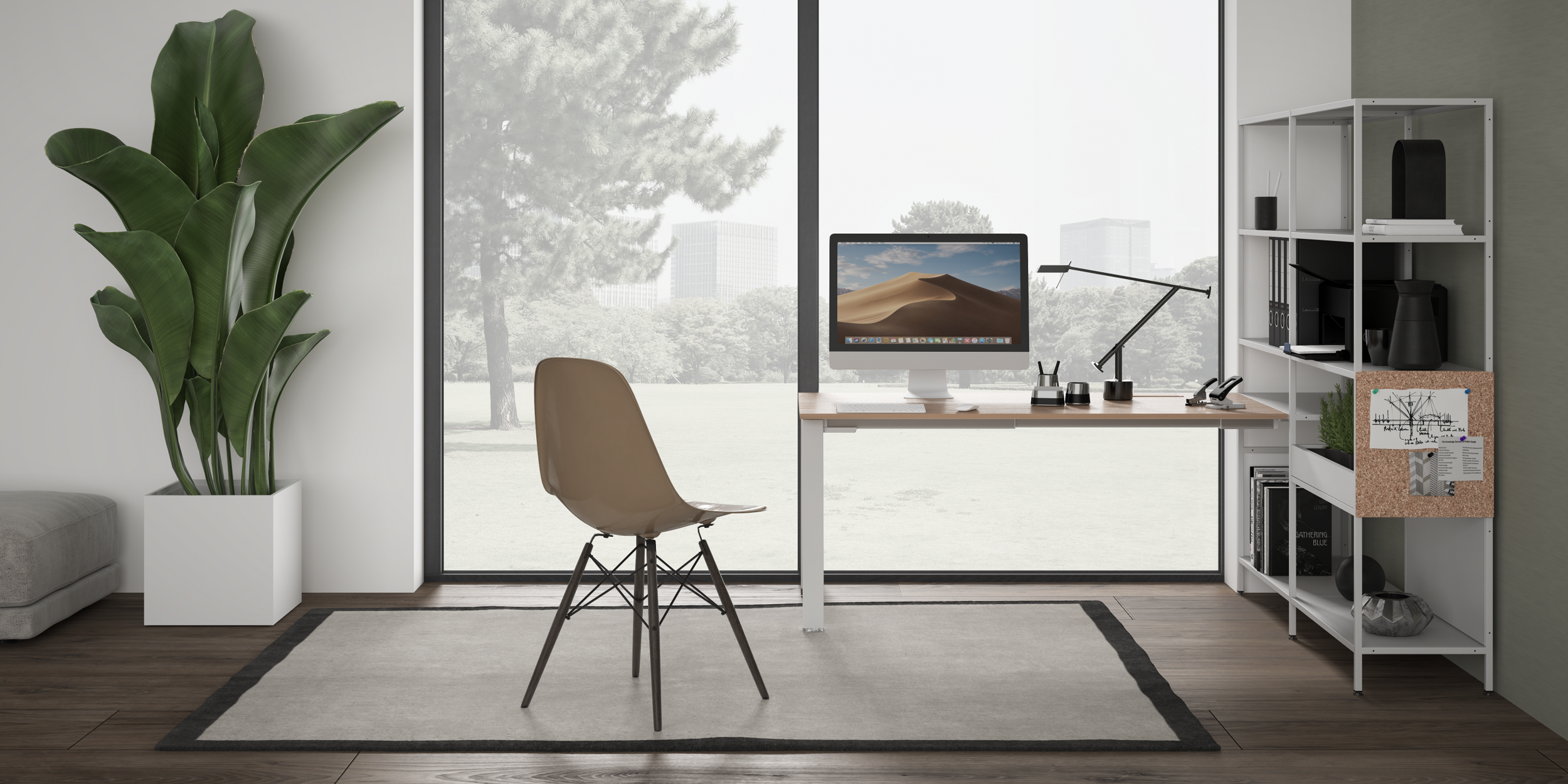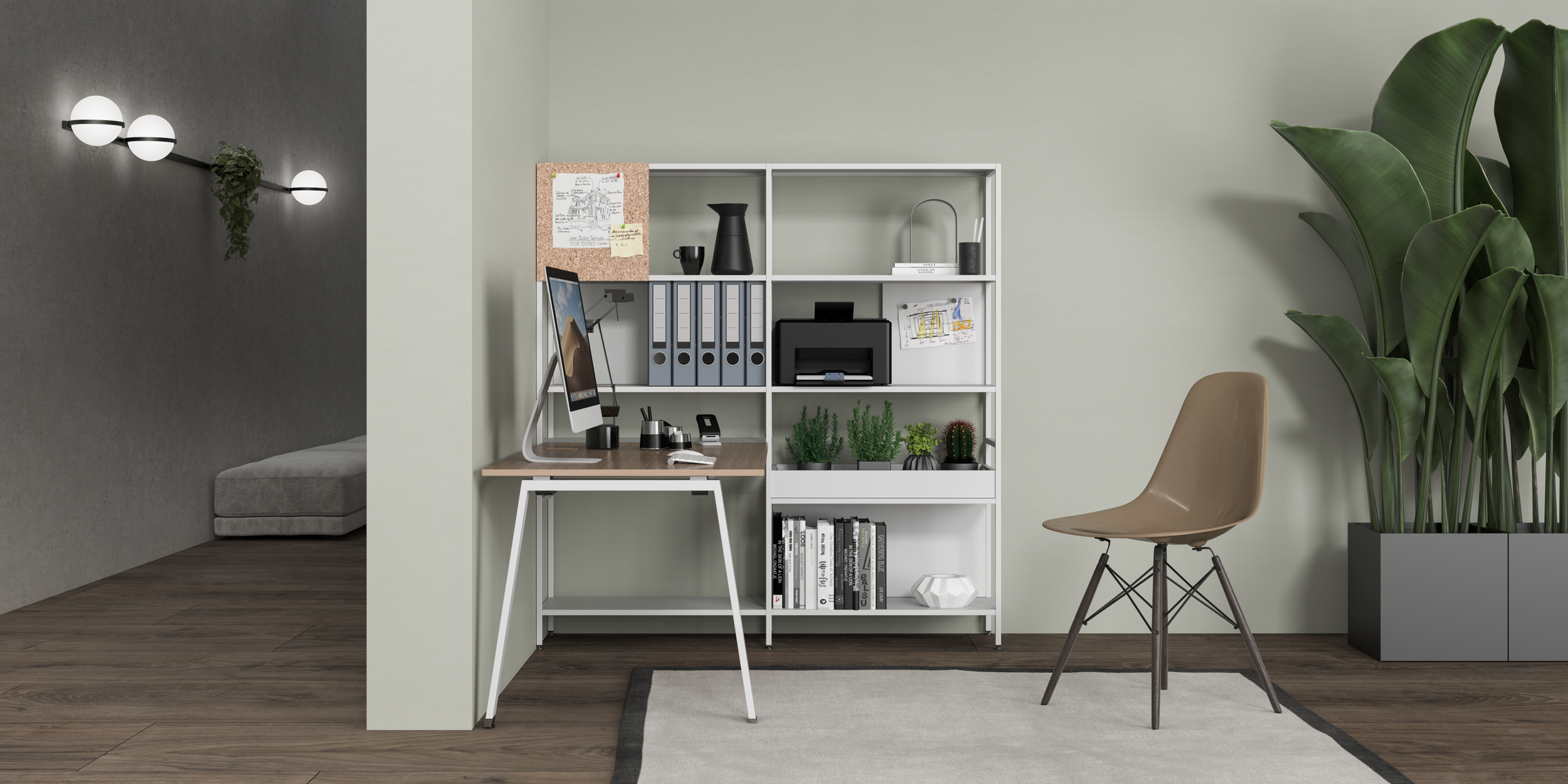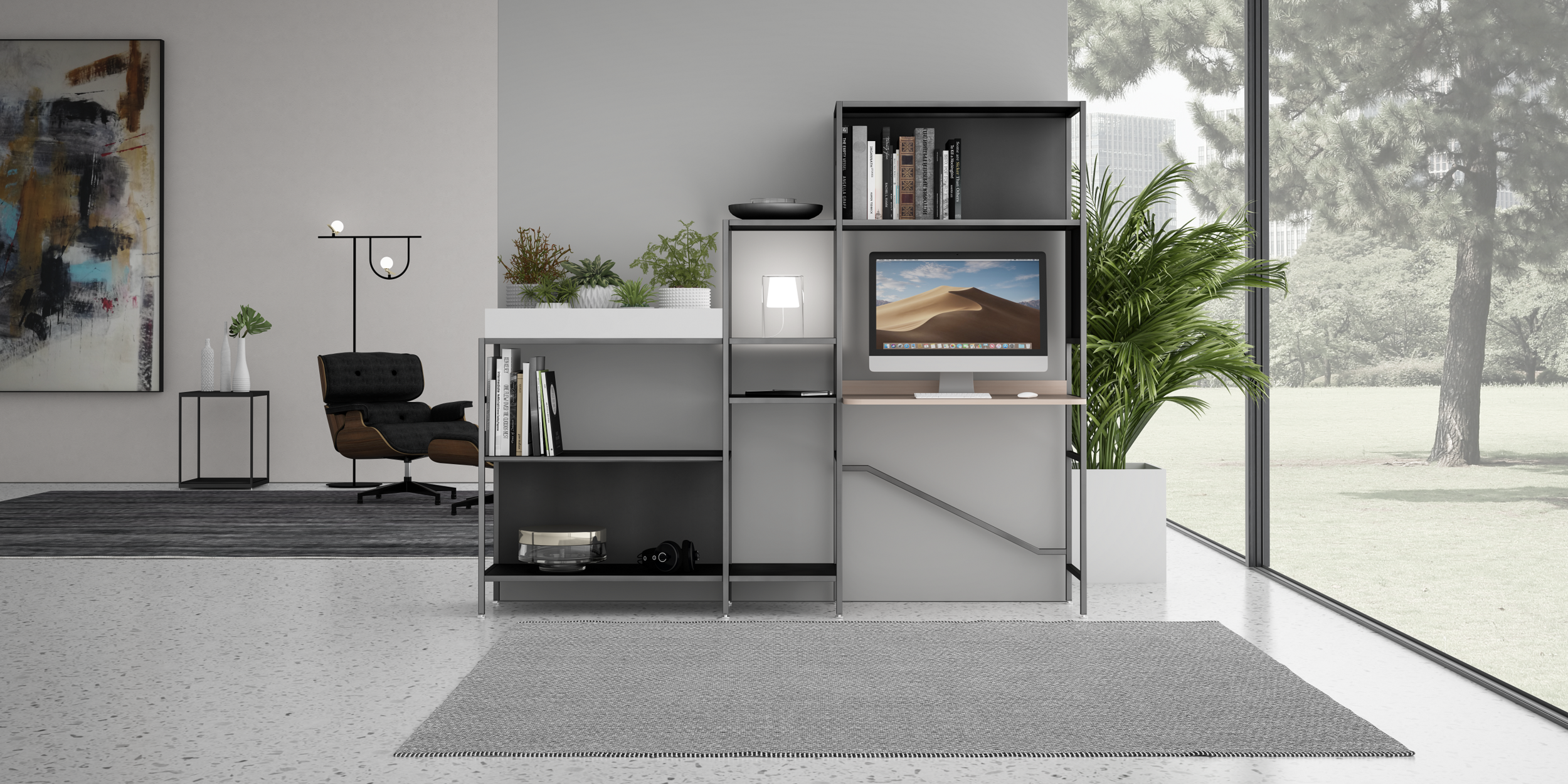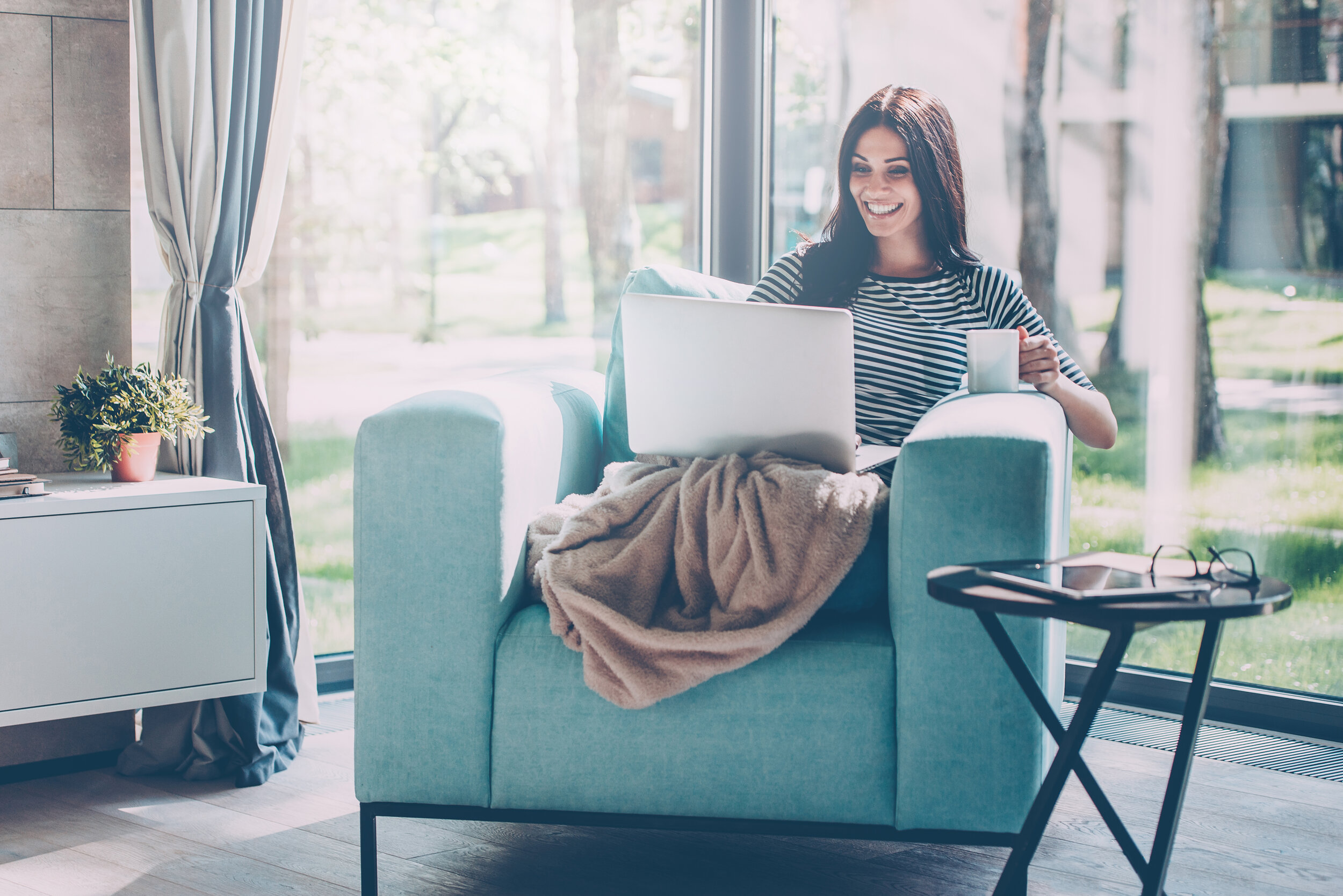La Creatividad es la Cura
/Diseño: Marco Trezza
Por: Marco Trezza
Edición: Kika Pérez
Una de las actividades más afectadas a nivel mundial por la pandemia del Covid-19 ha sido el trabajo en las oficinas. Luego de tres meses de confinamiento en todo el planeta y los consecuentes cambios en las actividades laborales, hemos quedado un poco desorientados en cuánto a cómo lucirá nuestro futuro profesional.
¿Seguirá reinando el concepto del tele-trabajo? ¿Qué pasará con las oficinas y sus dinámicas? ¿Cómo evolucionará la vida profesional mientras tengamos que seguir tomando medidas extremas de higiene y salud? Los nuevos paradigmas para ejecutivos se establecerán en el tiempo, pero sin duda, las soluciones serán las que logren combinar seguridad y comodidad.
En los últimos años, hemos visto una tendencia a alejarnos de las normas de etiqueta y protocolo que solíamos seguir. Ahora, nos guiamos más por lo intuitivo porque entendimos que la comodidad está directamente relacionada al rendimiento. En términos generales, nos hemos vuelto mucho más flexibles y menos complicados.
Para ir al trabajo, ya no hace falta vestirnos de traje ni saludar al jefe con terror. En muchos campos ha desaparecido la ansiedad de mantener el teatro del ejecutivo riguroso e intachable. Ese tipo hoy ya es un acartonado con quien no nos sentimos muy a gusto. Un escenario más casual ha ayudado a redefinir el concepto del joven emprendedor y a establecer una estética fresca y amable en las compañías. El tipo de los jeans y la camiseta punk-rock es ahora el CEO de la empresa y el de corbata es seguramente el empleado que atiende el front desk.
Otra de las innovaciones que llegaron para quedarse es la fluidez en los espacios, no sólo para trabajo desde casa sino también en la movilidad dentro de las oficinas mismas. Estaciones itinerantes y escritorios compartidos es otra forma de mantenernos en movimiento constante, acoplándonos al orgánico crecimiento de las relaciones interpersonales.
El actual distanciamiento social, como medida de prevención, ha reforzado la necesidad de actuar con prudencia. Navegaremos los cambios y estaremos parcialmente aislados por un tiempo, pero me niego a creer que sea el final contundente de las oficinas en general. Tampoco creo que vayamos a trabajar todos en piyama y en frente del computador por el resto de nuestras vidas.
Si bien seguiremos obrando desde la cautela, no será sano dejar ir del todo el contacto con los demás. Ese compartir humano es fuente fundamental para nuestro desarrollo y prosperidad como civilización. Y también es esencial en la ejecución de muchos tipos de proyectos especializados, donde se vuelve imperativo contar con la contribución presencial de los miembros. No podremos dejar de reunirnos para el trabajo y tampoco podremos dejar de hacerlo en lo particular.
No dejarán de existir los encuentros entre familiares, amigos o colegas. No morirán los restaurantes, los cines, los teatros, ni los momentos para tomarse un café y conversar en persona. Todas estas son plataformas de vida que nutren nuestra supervivencia.
Lo virtual no va a eliminar por completo lo real, como tampoco podremos comprar absolutamente todo online, ni celebrar cada cumpleaños que nos falta con fiestas en Zoom. Siendo objetivos y escuchando nuestra razón, sabremos discernir e ir construyendo un panorama híbrido, donde logremos reconectarnos con todo pero sin descuidar la seguridad de nuestras comunidades. Así iremos avanzando, distinguiendo lo útil y práctico, sin aceptar afirmaciones absolutas que nos condenen a la decadencia ni creer cada predicción ansiosa que leemos o escuchamos por ahí.
Los ambientes de oficina se consolidarán entre una amalgama de espacios comerciales y residenciales, al que se conoce como “resimercial.” Inicialmente, se trataba de armar un ambiente hogareño y amable dentro de las oficinas, pero ahora es también una oportunidad para organizar un despacho especializado dentro de nuestros hogares, con mobiliarios atractivos, inteligentes y de calidad.
La idea es procurar que los lugares donde desarrollemos tareas sigan siendo eficientes pero también acogedores y que de igual forma, cumplan con las pautas recomendadas para cualquier actividad comercial. En mi experiencia como diseñador de espacios de trabajo, veo que lo más importante es tener una buena iluminación, sillas ergonómicas, muebles de grado profesional y cuando sea necesario, un control auditivo idóneo por medio de páneles acústicos.
En tiempos de Covid-19, hay que pensar también en la integridad de nuestro entorno. La limpieza del aire y las superficies, y con ello la protección de cada miembro del equipo y visitante, se ha convertido en prioridad. Debemos entonces mantener los estándares de diseño pero también de seguridad, para construir estructuras que nos permitan seguir avanzando, juntos pero no revueltos, y sobre todo, con salud.
Glider collection with Kubick Flexi glass. Designed by Bralco.
No creo que esto nos lleve de regreso al ya anticuado esquema de los cubículos. Lo que se sugiere es lograr separaciones seguras pero que sean sutiles o incluso, transparentes, para preservar la unión visual y la sensación de libertad que brindan los puestos despejados. El encierro está descartado y con él, la incomodidad de nuestros compañeros.
También es recomendable amoblar las zonas con piezas de alta durabilidad, que aguanten los constantes procesos de desinfección y limpieza a los que nos vemos obligados y que le inspiren confianza a sus usuarios. Así, lograremos superar la ansiedad colectiva en la que vivimos hoy en día y alcanzar un exitoso desempeño, con optimismo y vigor.
Esta receta de protección y prosperidad se puede resumir en una sola intención: responsabilidad. Al comprometernos con el bienestar general, entendemos que sólo haciéndonos responsables de nuestros actos y sus efectos, podremos en realidad tomar las riendas, tanto a nivel gremial como individual.
Somos parte de un grandioso enlace simbiótico con todos y con todo a nuestro alrededor. Si los negocios siguen ese camino, el de la sensatez y el amor, entonces no habrá final fatal ni conclusión dramática, sino una luz al final de túnel, que alumbre el esfuerzo arduo de quienes no planean rendirse jamás.
Einstein solía decir que “la imaginación es más importante que el conocimiento.” Y creo que se refería al optimismo que vive dentro de quienes se enfocan en solucionar los problemas, porque básicamente, de eso se trata la vida: contestar las preguntas y superar los obstáculos. Por eso, siempre volvemos al tablero de dibujo y desciframos, una vez más, cómo rayos vencer cada nuevo reto. La creatividad es y siempre será la cura a todos los males.
Credit: pixelstalk.net
*Marco Trezza es Director de Arte y Diseño de UOF | USA Office Furniture.










